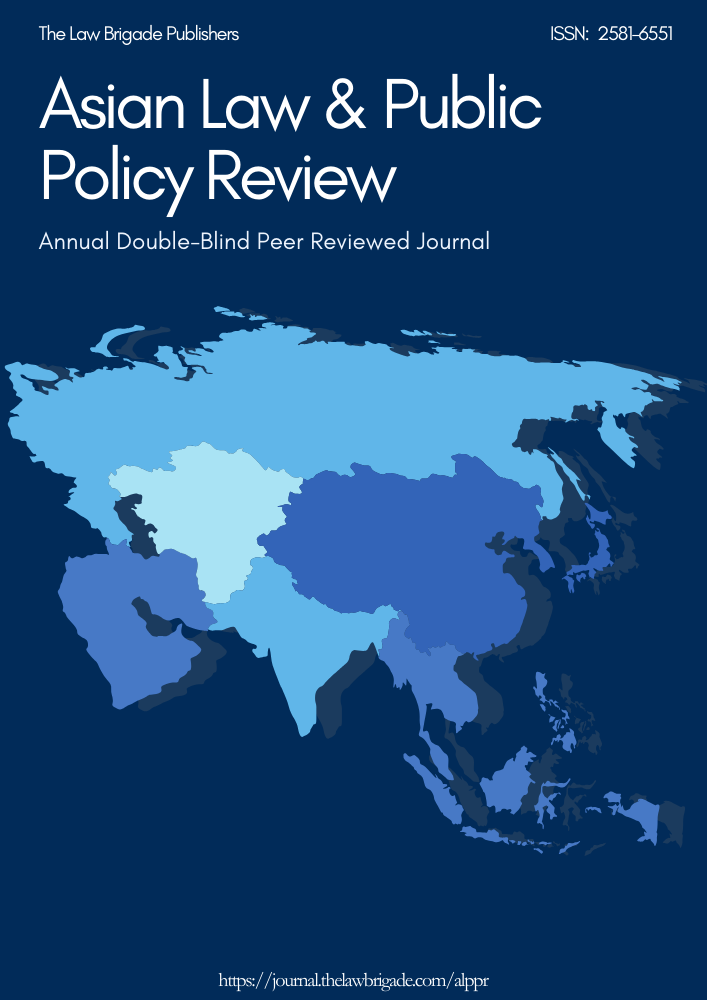Pre-Emption Meaning, Nature, Scope Under Muslim Law (Shufa) And Who Can Claim The Right
Keywords:
Shufa, Muslim personal law, immovable propertyAbstract
In the words of Mulla, “The right of shufaa or pre-emption is a right which the owner of an immovable property possesses to acquire by purchase another immovable property which has been sold to another person”. The foundation of the right of pre-emption is the human desire to avoid the inconvenience and disturbance which is likely to be caused by the introduction of a stranger into the land.1 Justice Mahmood has defined pre-emption as a right which the owner of certain immovable property possesses as such, for the quiet enjoyment of immovable property, to obtain in substitution for the buyer's proprietary possession of certain other immovable property not his own, on such terms as those on which such latter immovable property is sold to another person.2 The law of pre-emption under muslim religion is to be looked at in the light of the Muslim law of succession. Under Muslim law, death of a person results in the division of his property into fractions. If an heir is allowed to dispose of his share without offering it to other co-heirs, then it is likely to lead to the introduction of strangers into a part of the estate with resultant difficulties and inconveniences.
Downloads
References
1. https://www.scribd.com/doc/126718494/Pre-Emption-Muslim-Law
2. https://www.researchgate.net/publication/283185091_Preemption_Bangladesh_Approach
3. https://www.legalbites.in/muslim-law-notes-shufaa-pre-emption-concept-rightseffect/
4. manupatra.com
5. heinonline.com
6. Jstor.com
Downloads
Published
Issue
Section
License

This work is licensed under a Creative Commons Attribution-NonCommercial-ShareAlike 4.0 International License.
License Terms
Ownership and Licensing:
Authors of research papers submitted to any journal published by The Law Brigade Publishers retain the copyright of their work while granting the journal specific rights. Authors maintain ownership of the copyright and grant the journal the right of first publication. Simultaneously, authors agree to license their research papers under the Creative Commons Attribution-ShareAlike 4.0 International (CC BY-SA 4.0) License.
License Permissions:
Under the CC BY-SA 4.0 License, others are permitted to share and adapt the work, even for commercial purposes, provided that appropriate attribution is given to the authors, and acknowledgment is made of the initial publication by The Law Brigade Publishers. This license encourages the broad dissemination and reuse of research papers while ensuring that the original work is properly credited.
Additional Distribution Arrangements:
Authors are free to enter into separate, non-exclusive contractual arrangements for distributing the published version of the work (e.g., posting it to institutional repositories or publishing it in books), provided that the original publication by The Law Brigade Publishers is acknowledged.
Online Posting:
Authors are encouraged to share their work online (e.g., in institutional repositories or on personal websites) both prior to submission and after publication. This practice can facilitate productive exchanges and increase the visibility and citation of the work.
Responsibility and Liability:
Authors are responsible for ensuring that their submitted research papers do not infringe on the copyright, privacy, or other rights of third parties. The Law Brigade Publishers disclaims any liability for any copyright infringement or violation of third-party rights within the submitted research papers.


